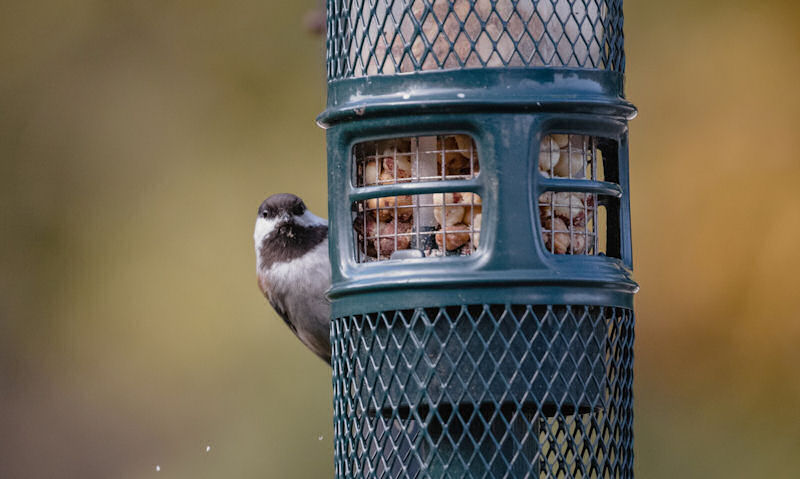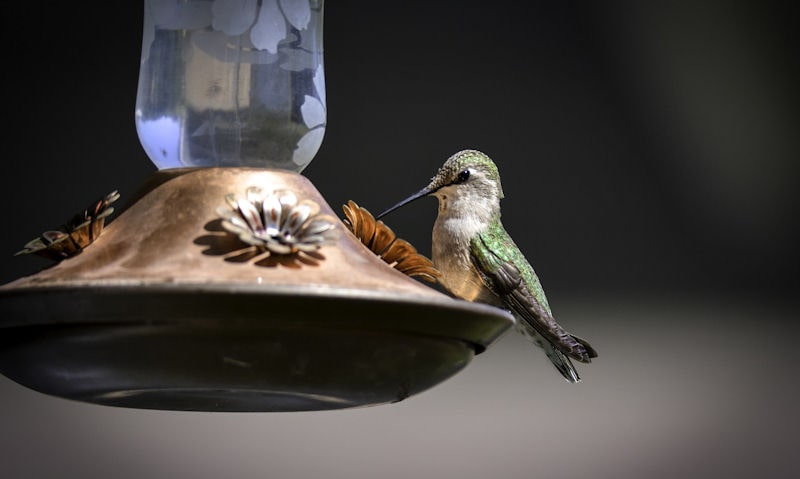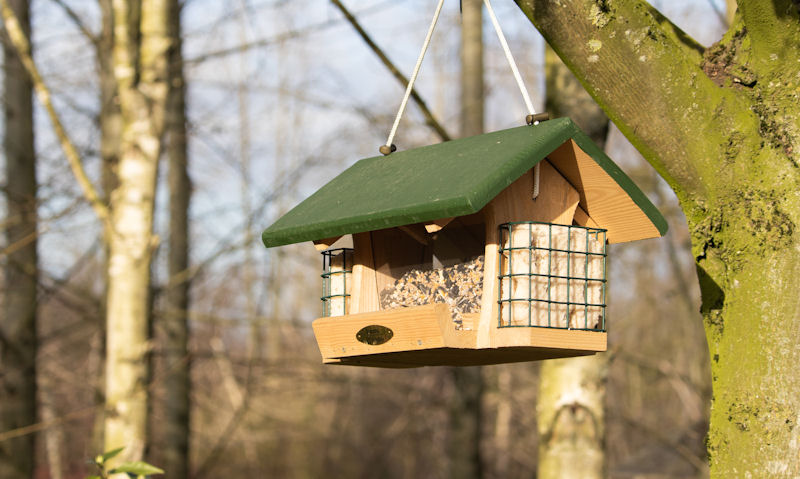Should bird feeder be cleaned
Feeders are a device that is located outdoors for the purpose of holding bird food, so of course bird feeders must be maintained to keep them in working order.
Bird feeders should be cleaned once or twice a week, or risk bacteria growing within the feeder if failing to remove gone off food properly. No maintenance of a feeder can make things worse, with feeders needing to be thrown out. Clear feeders of food quite often, then clean the feeder using a simple dish soap.
Once your collection of bird feeders appear to be faded or a mist as descended on the clear plastic or glass tube, or bottle for an Hummingbird feeder, its past its best.
To avoid this kind of thing happening too soon with your feeders, clean out your bird feeders to keep them nice and tidy.
Feeders must be cleaned out or else bacteria and germs would be present, leading to death for a mix of birds that feed off it.
Don't allow mold to form on your feeders by inspecting it thoroughly, but you can be extra cautious by preventing mold forming by cleaning bird feeders with a bleach solution, or why not a safe vinegar wash that would clean up any stubborn mold or leftover gunk.
Bleach can be avoided if you clean bird feeders once or twice a week, or more or less depending on how your bird feeders perform.
Open top platform bird feeders made in wood must be cleaned, using a simple bowl of soap and water - while avoid damaging the wooden surface.
Plastic feeders in the tube kind or glass Hummingbird feeders would need time to soak, then get a brush or rag inside to clean up any leftover soap residue.
Where feeders can get a bit greasy rather than messy is suet feeders; so how a suet feeder must be cleaned is in a grease beating dish soap, again with time to allow to soak.
Feeders must be cleaned
Make no mistake about it, bird feeders of any kind need to be cleaned at least once a week to maintain an hygienic feeder, used by a range of wild birds.
Failure to clean a bird feeder can see a build up of mold, in which case there is guarantee to be bacterial present, including other serious germs.
Birds in our yards can't take that, so for them to ingest bacteria can lead to illness, which would eventually kill them.
Bird feeders should be cleaned at least once a week, but make it twice weekly to be sure of maintaining a thoroughly cleaned out feeder.
Its not at all difficult to clean plastic, wooden or metal bird feeder; use a simple dish soap wash while using a brush or cloth to scrub. To clean feeders twice a week you'd probably avoid the need to vigorous scrub or scrap.
Feeders must be cleaned to keep bird food is the best possible condition, at all times.
No maintenance made worse
What can happen to a bird feeder that is left to go bad is the food contained within the feeder, can create a bacteria feeding ground.
Birds don't always understand about rotten food, so would continue to eat it so would make them poorly.
Rotten bird food in time can turn to a tough, hard to remove residue that is near impossible to lift off on the exterior, let alone removing bird food left inside the bird feeder if its allowed to rot.
No maintenance of a bird feeder of any kind - be it to hold bird seeds, peanuts or nectar for Hummingbirds - can see the problem made worse.
Of course there's no recovering a bird feeder once the food is allowed to go bad, while rotten food is kept inside the feeder for the rest of the year - with the only option to replace the bird feeder - rather than risk ruining new batches of bird food.
Clean the bird feeder once or twice a week to avoid all these issues, while being careful to remove any signs of mold.
Clear of rotten food
Not only should you clean a bird feeder in the mesh, plastic tube or even glass bottle option for Hummingbirds, bird food must be replaced regularly.
You can just about avoid cleaning a bird feeder every time you swap out food, providing you do clean the feeder once or twice a week.
Bird food can last up to a week or more in the colder weather, but not so much if its wet.
Similarly, bird food can last less than a week in the shade, but only a few days really if the bird feeder is allowed to hang in direct sunshine all day long.
Clear bird food out of the feeder as often as you can, while avoiding waste. Waste of bird food happens when overfilling bird feeders; knowing well they won't be eaten in time, thus its vital to only fill bird feeders part of the way up, while using far less food at a time.
Clean up any left over bird food within the feeders but do give it a close inspection to be sure there's no leftover crumbs or food bits the new food would be piled on.
Clean feeders twice weekly
How often you clean a bird feeder can depend on the weather, and how frequent the bird feeders get used.
To be absolutely safe when deciding how often to clean out a bird feeder, you can't go wrong by doing so twice a week.
Cleaning a bird feeder once a week is certainly reasonable, but only you can make this decision because your localized climate or wild birds can speed up a messy bird feeder, or indeed - no mess would be made in quieter yards.
Birds feeders made for Hummingbirds require you to empty the nectar water, while replacing it with fresh sugary-water twice a week... or more if the nectar is seen to mist over sooner than later.
Unlike the need to clean a Hummingbird feeder to prevent mold forming - like you would a glass or plastic bottle would - other feeders can be dismantled, thus are made a little easier to clean.
The easier a bird feeder is to clean, people are often more committed to the cause; so don't use feeders that are hard to clean, while favoring feeders that are easy to dismantle and put back together again.
To summarize
Bird feeders should be cleaned as often as you can, to avoid rot setting in with bacteria eventually growing - plus bird food not thrown out can spell in time.
Much like the need to do the dishes, there's no difference between cleaning feeders intended for birds, or plates and utensils for people.
Feeders should be cleaned out or else bird food would go rotten, and therefore would be made harder to remove old food once it builds up into a stubborn residue.
Maintain bird feeders or else things will get worse, including your expensive bird feeders looking a little worse for wear if they are not cleaned up with dish soap once or twice a week - or when a stronger cleaning solution is needed.
Remove bird food before cleaning a feeder with a vinegar or strong bleach solution, but again you'd have to make sure the cleaning solution residue is completely removed.
Feeders can be cleaned once a week, but twice a week can in turn make life a little easier for you down the road.


